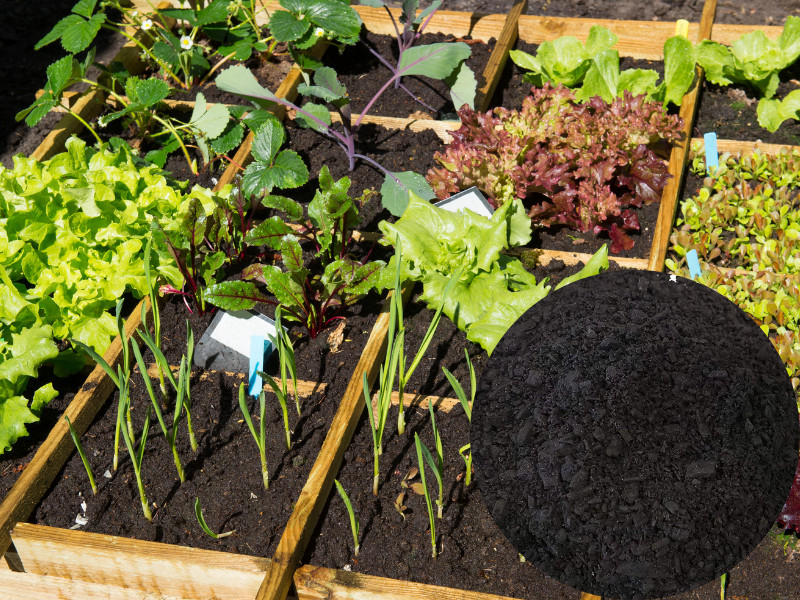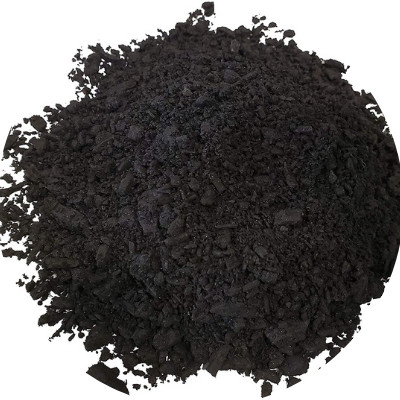If you are starting a garden in your backyard or any open area of land, you should know about soil amendments. Making amendments to the soil is a fantastic way to encourage the growth of crops you choose to grow. Before you jump into using biochar as a soil amendment, you need to know more about it and how it works.
It also helps to understand the purpose of a soil amendment before adding anything to the soil you are using for your flowers, vegetables, and fruits.
What Does a Soil Amendment Do to the Soil?
A soil amendment adjusts the quality of the soil. Farmers and gardeners will typically add some material to their soil for a specific purpose, making the soil less acidic or more acidic. The particular amendment chosen does depend on what these individuals will grow on their land. Using the proper amendment on your soil will help it retain water and stay in the best condition possible. Your plants need to have good soil to grow. If the soil is bad, the plants cannot thrive, and they will end up dying on you.
Awesome Soil Amendments for Your Organic Vegetable Garden
What Is Biochar?
Biochar is a charcoal substance. It is carbon-rich and comes directly from biomass but does not contain oxygen. It consists of different materials that get burned without added oxygen. Some of the materials that can turn into biochar include old leaves, wood chips, and plants. While you would not want to burn thriving plants, you could use old, dead plants to create biochar that you will reuse in your garden to help new plants thrive.

Why Do People Use Biochar as a Soil Amendment?
People often use biochar as a soil amendment because they want to improve the soil’s quality. It makes the soil more fertile, thus creating the perfect environment for plants to grow. Those who want their plants to thrive will often use an amendment, such as biochar, to increase the chances of having success.
When used correctly, it can improve the quality of the air surrounding the plants. Those who use biochar do not need to use as much fertilizer as those who do not use this amendment in the soil.
The Benefits of Using Biochar on Soil
You can reap the many benefits associated with using biochar when you add it to your soil. Some of the leading benefits include:
- It helps stimulate plant growth. When you plant seedlings into the ground, you have high hopes that you will eventually see the fruits of your labor. Using biochar in the soil is a great way to stimulate plant growth, transforming the seeds into whole plants in no time.
- It retains nutrients. The biochar holds onto the nutrients from the soil, which is suitable for growing plants. It makes the plants grow faster and stronger.
- Use less fertilizer. If you are using biochar in the soil, you will no longer need to use lots of fertilizer to keep the soil in optimal condition. As a result, you can save money and still get your plants to look their best.
- It makes it possible for plants to release more oxygen. Plants in soil with biochar will consume plenty of carbon dioxide and turn it into oxygen, which improves the air around the plants.
- It is easy to find and affordable. You can purchase the biochar at plant stores and online stores, including Target and Amazon. Biochar is an inexpensive solution to treating the soil.
As you can see, it is beneficial to use biochar in soil for various reasons. If you want an affordable amendment that will improve soil quality and encourage your plants to grow, biochar may be the solution you need. It is important to know as much as possible when using Biochar as a soil amendment.
Is It Safe for the Environment?
As someone who cares about the environment, you may want to make sure that using it is safe. The good news is that biochar is environmentally friendly and sustainable. You do not need to worry about causing harm to plants, animals, or any other living, breathing things when you use biochar.
Are There Any Disadvantages Associated with Biochar?
With such positive advantages, you probably wonder if there are any cons to using biochar in the soil. Unfortunately, there are a few disadvantages, so it is vital to weigh out the good and bad before deciding to use it in your soil. Some of the disadvantages include:
- Some contain heavy metals. Versions of biochar containing heavy metals do exist. You need to be careful when selecting the specific type of biochar to add to your soil. Look for one with little to no metals.
- It can lead to dust that triggers allergies. When spreading biochar out on soil, the wind may blow it around a bit, causing dust in the air that can trigger your allergies. If you want to avoid this issue, consider spreading it out on a non-windy day. You might even want to add a bit of water on top of it to keep it in place and prevent it from flying around into the air.
- It is not ideal for soils with high pH levels. If you are already using soil with a high pH level, adding biochar to it is not the best idea. You may end up creating an environment for plants that is too acidic for them to thrive.
Using Biochar as a Soil Amendment
Despite the minor disadvantages, biochar can still work well for the crops you are growing on your land. The best thing you can do is as much research as possible on biochar, the soil you use, and the specific crops you grow. Use that valuable information to determine if biochar is the appropriate soil amendment for you.
Using biochar as a soil amendment is not uncommon. Many people use it to improve the soil’s quality to give their plants an even greater chance of surviving and thriving. It is a fantastic amendment for various crops, but it is crucial to buy the correct type of biochar before using it. If you use the right amendment in the soil, you will notice the significant improvements it makes.
More Gardening Help
What to Plant Each Month of the Year
Wood Ash as a Good Soil Amendment
How to Improve Soil Without a Compost Pile
The Best DIY Soil Mix Recipe
Crop Rotation for Backyard Gardens






